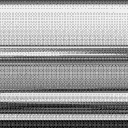@ddw_music said:
I still think Tcl/Tk has failed to keep up with modern standards, and I have my doubts that it will ever catch up. So, I still think that Pd hampers its own progress by hitching itself to the Tcl/Tk wagon.
I think most people agree with you, myself included. Tk is clunky but it's in the current code base and has been kept so far since it works, although admittedly barely in many cases.
The last couple of posts here are encouraging.
I know development is slow, but it's really working against inertia. Momentum has been growing the last years and that's mostly due to more effective collaboration to tackle some of these issues. I think finding a sustainable approach to the GUI is one of the largest ones, so is taking a while to grow.
IMO a fair comparison is: normal screen size in Linux vs normal screen size in Mac.
Nope. See above. 
Developer vs user perspective. The user sees clean diagonals on Mac, and jagged diagonals on Linux or Windows, and I think it's perfectly legitimate for the user not really to care that it's the OS rather than the drawing engine that makes it so in Mac. (It's correct, of course, to point out that the diagonals on a retina display will look smoother than antialiased diagonals without retina.)
Yup, you are totally right. I didn't mean to imply the Linux screenshot looked good since "that's the way it is" just more that it looks so much better on macOS since the screenshot is likely double the resolution as well.
I started using Pd on Windows circa 2006 then jumped to Linux for many years, then to macOS. My feeling was that Pd worked best on Linux but a lot of that has caught up as the underlying systems have developed but in some ways the Linux desktop has not (for many reasons, good and bad).
- Your point (c) already happened... you can use Purr Data (or the new Pd-L2ork etc). The GUI is implemented in Node/Electron/JS (I'm not sure of the details). Is it tracking Pd vanilla releases?... well that's a different issue.
I did try Purr Data, but abandoned it because (at the time, two years ago), Purr Data on Mac didn't support Gem and there were no concrete plans to address that. This might have changed in the last couple of years (has it? -- I've looked at https://agraef.github.io/purr-data/ and https://github.com/agraef/purr-data but it seems not quite straightforward to determine whether Gem+Mac has been added or not).
That's a result of many of the forks adopting the "kitchen sink" monolithic distribution model inherited from Pd-extended. The user gets the environment and many external libraries all together in one download, but the developers have to integrate changes from upstream themselves and build for the various platforms. It's less overheard for the user but more for the developers, which is why integrating a frankly large and complicated external like GEM is harder.
I'm happy to download the deken GEM package because I know the IEM people have done all the craziness to build it (it's a small nightmare of autotools/makefiles due to the amount of plugins and configuration options). I am also very happy to not have to build it and provide it to other users but in exchange we ask people to do that extra step and use deken. I recognize that the whole usage of [declare] is still not as easy or straightforward for many beginners. There are some thoughts of improving it and feedback for people in the teaching environment has also pushed certain solutions (ie. Pd Documents folder, etc).
Tracking vanilla releases was the other issue. A couple of years ago, [soundfiler] in Purr Data was older and didn't provide the full set of sound file stats. That issue had been logged and I'm sure it's been updated since then. "Tracking" seemed to be manual, case-by-case.
By "tracking" I am referring to a fork following the new developments in Pd-vanilla and integrating the changes. This becomes harder if/when the forks deviate with internal changes to the source code, so merging some changes then has to be done "by hand" which slows things down and is one reason why a fork may release a new version but be perhaps 1 or two versions behind Pd vanilla's internal objects, ie. new [soundfiler] right outlet, [clone] object, new [file] object, etc.
- As for updating Tk, it's probably not likely to happen as advanced graphics are not their focus. I could be wrong about this.
I agree that updating the GUI itself is the better solution for the long run. I also agree that it's a big undertaking when the current implementation is essentially still working fine after over 20 years...
Well, I mean, OK up to a point. There are things like the Tcl/Tk open/save file dialog, which is truly abhorrent in Linux.
Hah yeah, I totally understand. My first contribution to Pd(-extended) was to find out how to disable showing hidden files in the open/save panels on Linux. You would open a dialog, it defaulted to $HOME, then you had to wade through 100 dot folders. Terrible! Who did this and why? Well it wasn't on purpose, it was just the default setting for panels on Tk, and I added a little but of Tcl to turn it off and show a "Show hidden files/folders" button below.
OTOH I have a colleague at work who's internal toolkit still uses Motif. Why? Well it still works and he's the only user so he's ok with it. I'd say that Tk also still uses Motif... but there are many users and they have much different expectations. ;P
Some puzzling decisions here and there -- for example, when you use the mouse to drag an object to another location, why does it then switch to edit the text in the object box? To me, this is a disruptive workflow -- you're moving an object, not editing the object, but suddenly (without warning) you're forcibly switched into editing the object, and it takes a clumsy action of clicking outside the object and dragging the mouse into the object to get back to positioning mode. I feel so strongly about it that I even put in a PR to change that behavior (https://github.com/pure-data/pure-data/pull/922), which has been open for a year and a half without being either merged or rejected (only argued against initially, and then stalled).
Ah yes, I forgot about this one. It wasn't rejected, just came at a time when there were lots of other things shouting much louder, ie. if this isn't fixed Pd is broken on $PLATFORM. I would say that, personally, your initial posting style turned me off but I recognize where the frustration came from. I also appreciate making the point AND providing a solution, so the ball is in our court for sure. I will take a look at this soon and try it out.
"Still working for 20 years" but you could also say, still clunky for 20 years, with inertia when somebody does actually try to fix something.
Another approach would be to try to bring improvements to Tcl/Tk itself but the dev community is a little opaque, more so than Pd. However I admit to not having put a ton of time into it, other than flagging our custom patches to the TK macOS guy on Github.
WRT to the rest, any architectural improvements (e.g. drawing abstractions so that the Pd core isn't so tightly coupled to Tcl/Tk) that make it more feasible to move forward are great, would love to see it.
As would I... we are preparing for a major exhibition opening in December, but I will have some time off after and I may take a stab at a technical demo for this (among other things) then pull in some other perspectives / testers. It has been an itch I have wanted to scratch since, at least Pd Con 2016 in NYC.



 .
.

 which is probably not a simple merge.
which is probably not a simple merge.